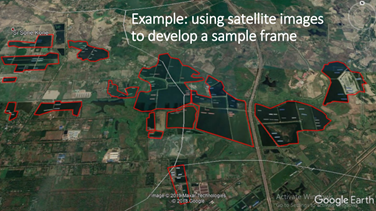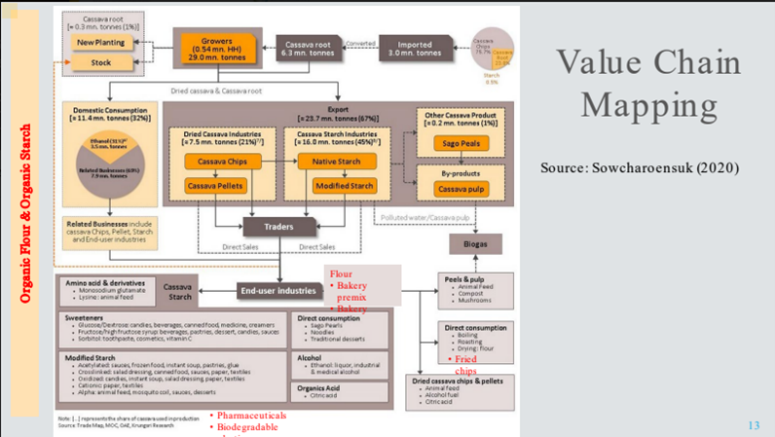PRCI Southeast Asia workshop for developing cassava value chain analysis proposals
Kasetsart University (KU) in collaboration with IFPRI conducted a PRCI Southeast Asia workshop for developing cassava value chain analysis proposals
To develop cassava value chain analysis proposals in Southeast Asia, the USAID funded Innovation Lab for Food Security Policy Research, Capacity and Influence (PRCI) Southeast Asia in coordination with Kasetsart University and the International Food Policy Research Institute (IFPRI), held a morning workshop with educational sessions and presentations by partnering countries. The objective of the workshop was to provide an overview of value chain analysis concepts and current research gaps in the region. During the webinar, given on Feb 18, 2022, four researchers gave educational presentations on the process and importance of value chain analysis as well as reviewing research on the cassava value chain. Research proposal presentations were made by PRCI’s Laos, Thailand, and Cambodia country partners.
Before the research proposal presentations were made, there were four educational sessions about the process of value chain research. The first session was a welcome on behalf of PRCI by Suresh Babu and Ora Napasintuwong. Suresh Babu gave a brief overview of the PRCI project and Ora Napasintuwong discussed the program agenda for the workshop and the past research activities undertaken on value chain needs assessment process under PRCI. Next, Bart Minton of IFPRI presented on how food value chain transformation occurs in African and Asian developing countries.

The third session was led by Ben Belton, Associate Professor at the Department of Agricultural, Food and Resource Economics (AFRE), on designing and implementing agri-food value chain surveys. The presentation included research objectives, how to frame value chain research, and detailed explanations of the step-by-step process of value chain analysis. The final educational session was presented by Jonathan Newby, of the International Center for Tropical Agriculture (CIAT). He went into detail about the cassava value chain in Southeast Asia clarifying what is already known and where there are still gaps in the research. You can find the visual presentation materials here.

Following the educational sessions, each partnering country was given ten minutes to present their research proposal on the cassava value chain. First, two research teams represented Thailand, from the Department of Agricultural and Resource Economics, KU, and the Department of Agro-Industrial Technology Management, KU. Both teams identified key issues, including the dependency of the Thai cassava industry on domestic ethanol industry, labor challenges, low investment in research, and dependency on China as an export market. Potential value chain upgrades were suggested, including gluten-free products, organic products, bioethanol, bio plastic and global trade.
Cambodia presented next, represented by a team from the Cambodia Development Resource Institute (CDRI). They pointed out that Cambodia is in the top ten cassava producers worldwide and laid out a literature review of previous research. They then developed two research questions based on their review of the research, current policies, and cassava value chain data. The Institute for Industry and Commerce (IIC) represented Laos and presented a case study on the determinants of Lao agricultural export performance.
Discussion of their respective countries’ concept notes on conducting cassava value chain analysis was fruitful and the feedback received from the workshop will be used by country partners to further develop and finalize their research proposals.
View the visual materials here.
See the recording of the webinar here.



 Print
Print Email
Email




